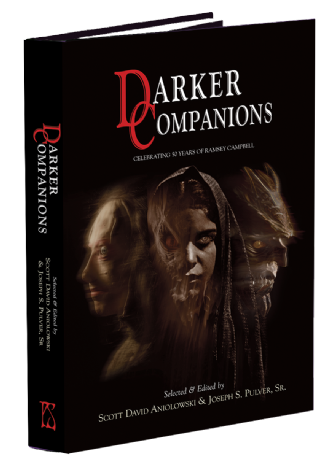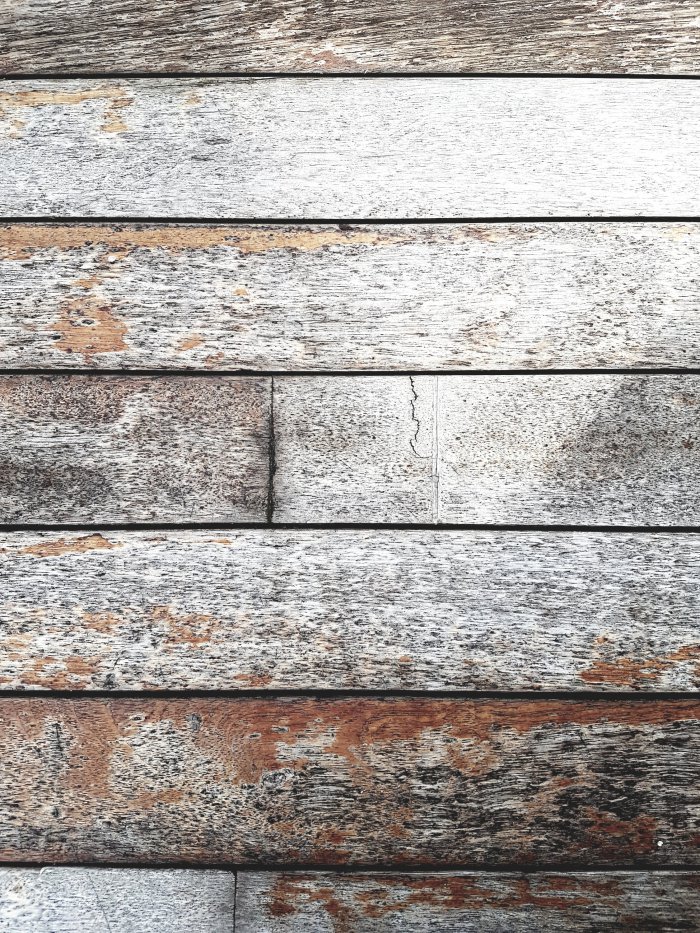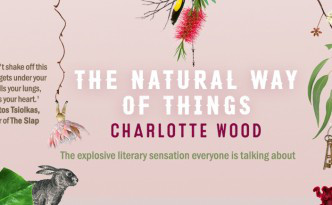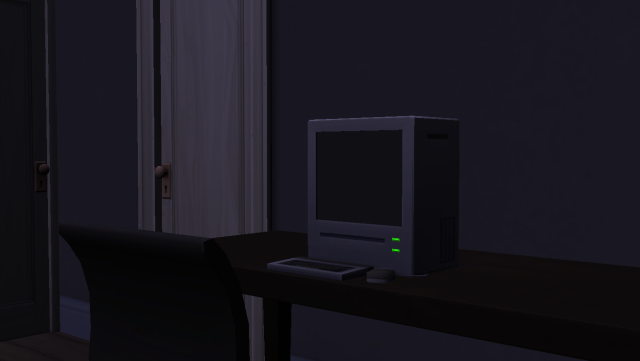
Darker Companions, a Ramsey Campbell tribute anthology, is out now from PS Publishing, with cover art by the great JK Potter.
Here’s the glorious lineup:
- Introduction: Hymns from the Church in High Street by Scott David Aniolowski
- Holoow by Michael Wehunt
- The Long Fade into Evening by Steve Rasnic Tem
- Asking Price by S.P. Miskowski
- Author! Author? by John Llewellyn Probert
- Meriwether by Michael Griffin
- The Entertainment Arrives by Alison Littlewood
- Premeditation by Marc Laidlaw
- A Perfect Replica by Damien Angelica Walters
- There, There by Gary McMahon
- We Pass from View by Matthew M. Bartlett
- Meeting the Master by Gary Fry
- Saints in Gold by Kristi DeMeester
- This Last Night in Sodom by Cody Goodfellow
- The Whither by Kaaron Warren
- Uncanny Valley by Jeffrey Thomas
- The Dublin Horror by Lynda E. Rucker
- The Sixth Floor by Thana Niveau
- The Carcass of the Lion by Christopher Slatsky
- The Granfalloon by Orrin Grey
- Little Black Lamb by Adam L G Nevill
When Joe Pulver first asked me to contribute to a Ramsey Campbell tribute anthology he would be editing with Scott Aniolowski, my reply was something like Try and stop me! Ramsey Campbell has been one of the most significant influences from the horror genre on my own writing, and I was thrilled at the opportunity to honor him in this way.
I first read Ramsey Campbell as a teenager—a copy of The Face That Must Die, the Scream Press edition with the JK Potter photographs and the harrowing essay by Ramsey about his childhood somehow made its way into our house in rural Georgia. (I have no idea how. Perhaps through some demonology on the part of Ramsey himself.) That was quite an introduction to his work. To be honest, at the time, I wasn’t sure what I thought about it. I’d never encountered anything like it. But a couple of years later, I’d started reading his stories in Year’s Best anthologies and picked up The Hungry Moon, a tale of ancient pagan evil and modern fundamentalism in a small English village, at my university library. I loved it.
Not long after that, I went to Ireland for a few months on a student work visa. I waited tables in a pub in Dublin, a dreadful yuppie establishment that used to be on Wicklow Street, thankfully now long gone and forgotten, and drank a lot of Guinness. I was pretty broke, and books were expensive in Ireland even then, so I relied on charity shops and my two flatmates to keep me in a steady supply of reading material. At one Oxfam shop near where I lived in Rathmines, Ramsey Campbell paperbacks started turning up, one or two a week. It became a kind of ritual, stopping in to see if whoever seemed to be working their way through Ramsey’s bibliography and then passing them more or less directly on to me had left me another. It was during this time that I fell well and truly in love with his work, his allusive and often intricate style, his descriptions of a world in which realities shifted in front of characters’ eyes, and his themes, including those of alienation and the oppressive nature of organized religion–two that I borrowed for my own story in this anthology. I remember how sad I was when I’d read all the novels he’d written up to that point, and there were no more new books coming in.
It was with all this in mind that I set out to write “The Dublin Horror.” I wanted my main character to be a 1980s teen goth girl—perhaps not so different from Amy of Ramsey’s 1998 novel Nazareth Hill, one of my favorites by him. I wanted her to discover a writer in the same way I’d fallen in love with Ramsey’s books, and as I once owned a copy of his Night of the Claw written as Jay Ramsey, in a moment of cheekiness I gave the writer the first name of Jay. After that it got cheekier—I won’t spoil my own story, but suffice it to say any resemblance to Ramsey Campbell, the writer and the person I have come to know a little over the years, ends there.
At its core, though, I wanted to tell a story that evoked the same sense of disorientation and isolation that so many of Ramsey’s stories have done for me. I set out to write something that felt, to me at least, Campbellesque, as filtered through my own style and preoccupations. I’m just so pleased to have had the opportunity to contribute to this anthology and to pay my respects to a writer who has meant so much to me—not just as a writer, but as a reader. Like many of my colleagues, I wouldn’t be here in quite the same way without him.
Advertisements Like this:Like Loading... Related




